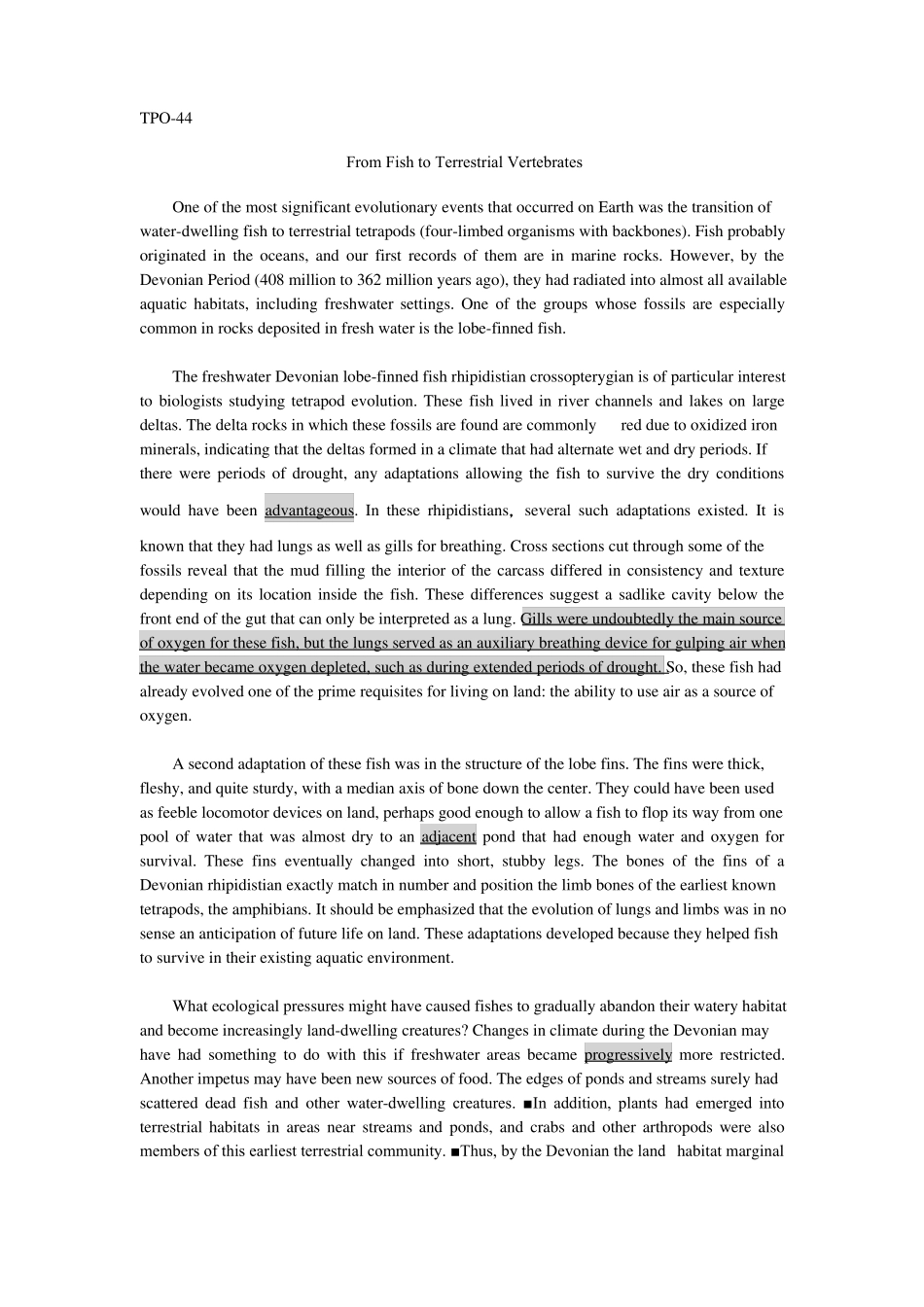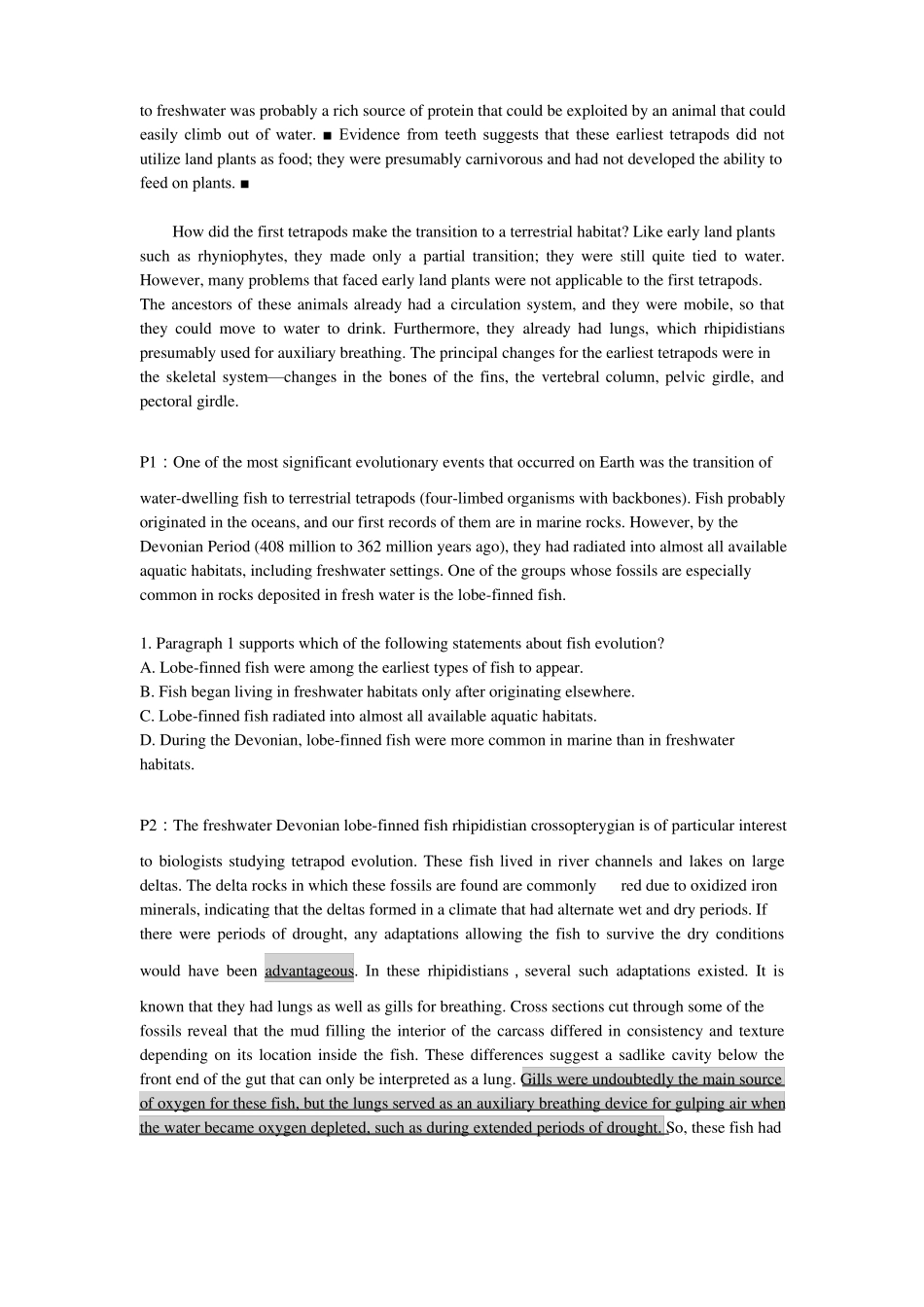TPO-44From Fish to Terrestrial VertebratesOne of the most significant evolutionary events that occurred on Earth was the transition ofwater-dwelling fish to terrestrial tetrapods (four-limbed organisms with backbones). Fish probablyoriginated in the oceans, and our first records of them are in marine rocks. However, by theDevonian Period (408 million to 362 million years ago), they had radiated into almost all availableaquatic habitats, including freshwater settings. One of the groups whose fossils are especiallycommon in rocks deposited in fresh water is the lobe-finned fish.The freshwater Devonian lobe-finned fish rhipidistian crossopterygian is of particular interestto biologists studying tetrapod evolution. These fish lived in river channels and lakes on largedeltas. The delta rocks in which these fossils are found are commonlyred due to oxidized ironminerals, indicating that the deltas formed in a climate that had alternate wet and dry periods. Ifthere were periods of drought, any adaptations allowing the fish to survive the dry conditionswould have been advantageous. In these rhipidistians,several such adaptations existed. It isknown that they had lungs as well as gills for breathing. Cross sections cut through some of thefossils reveal that the mud filling the interior of the carcass differed in consistency and texturedepending on its location inside the fish. These differences suggest a sadlike cavity below thefront end of the gut that can only be interpreted as a lung. Gills were undoubtedly the main sourceof oxygen for these fish, but the lungs served as an auxiliary breathing device for gulping air whenthe water became oxygen depleted, such as during extended periods of drought. So, these fish hadal...


